PRIDE & PREJUDICE (2005)
When Elizabeth Bennet meets the handsome Mr Darcy, she believes he's the last man she could ever marry, but as their lives become intertwined, she finds herself captivated by him.
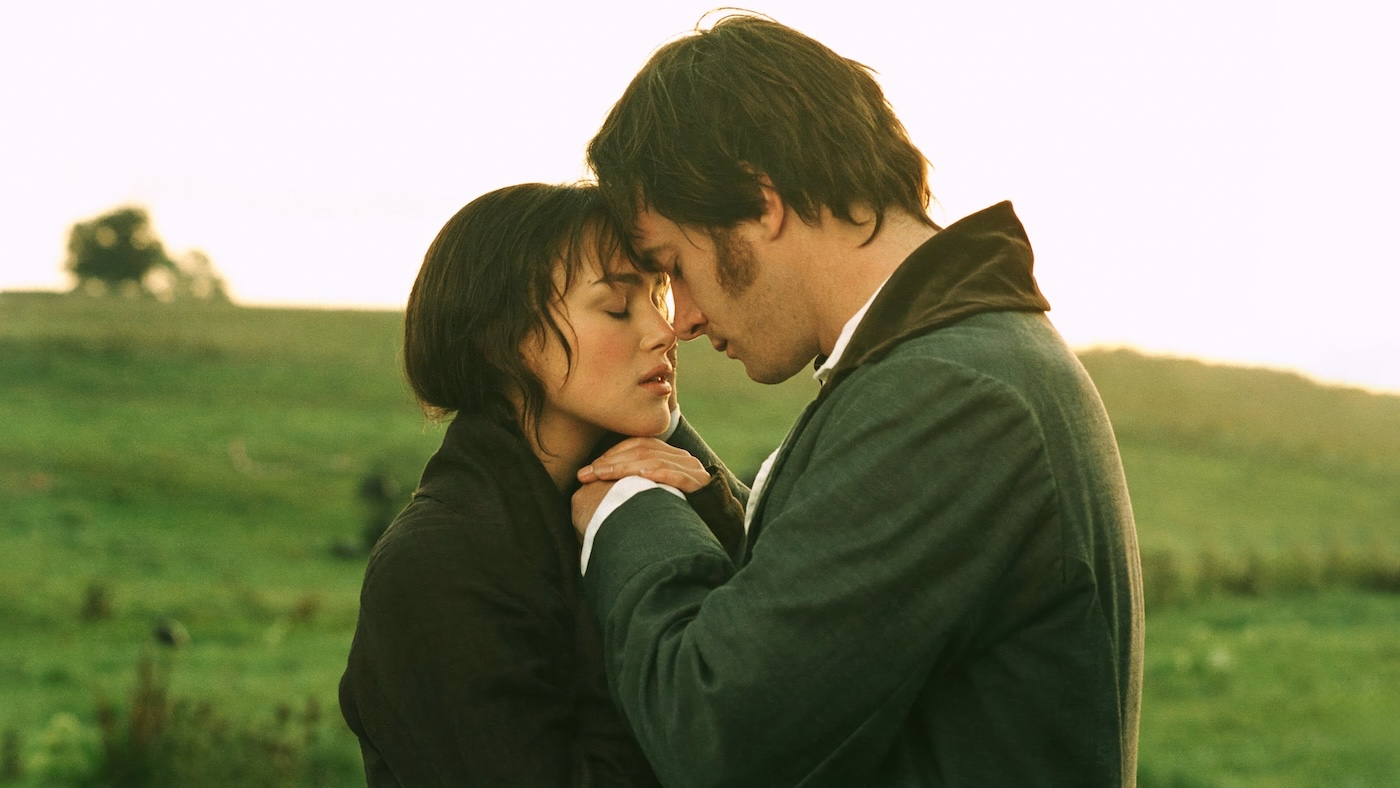
When Elizabeth Bennet meets the handsome Mr Darcy, she believes he's the last man she could ever marry, but as their lives become intertwined, she finds herself captivated by him.

The silent power of touch. The crackling electricity of chemistry, so fiery you can almost glimpse its magical dance beneath these characters’ fingertips, begging them to step closer as the rest of the world dims into nothingness. The absence of all other thought except for longing, quickly supplemented by rather pathetic appeals to decency or respectability, both of which rob these characters of true happiness. The desire to shun all notions of fortune and wealth in the face of true love, and the impossible-to-resist urge to do the opposite when one is no longer left dumbstruck by an attraction so blinding it feels briefly fatal.
All of these undercurrents of emotion leap off the screen in Joe Wright’s Pride & Prejudice, a film so stunning I find myself at a loss to understand how this was his feature directorial debut. Though I have been blessed with the good fortune to watch enough great cinema to recognise that this is by no means an impossible feat, it’s equally impressive that Wright so eagerly and keenly embraces the childish glee of a young woman in love. Giggling fits are common in Pride & Prejudice, most often from the ridiculous younger siblings of the Bennet household, Lydia (Jena Malone) and Catherine ‘Kitty’ Bennet (Carey Mulligan). Their shrill theatrics still don’t hold a candle to that of their high-strung, marriage-obsessed mother, Mrs Bennet (Brenda Blethyn) who will stop at nothing to see her five daughters wed to wealthy husbands.
They are inane characters too concerned with the most petty aspects of romance to be taken seriously, absurd creations whose fickle qualities underscore this society’s strange interpretation of romance. Their presence marks out one of Pride & Prejudice’s roles, which is to successfully operate as a standard period piece. Viewers are invited to marvel at the many stately and grand homes throughout the film, admiring them as appreciably as Mrs Bennet often does (though ideally without the hysterics attached to these comments). In many ways this is a movie about idle people desperate to retain their idle nature, whereby daughters must marry rich men to secure the family’s fortune and give them a chance to sit around all day and do nothing, until these daughters have children of their own to fret over for the very same reasons.
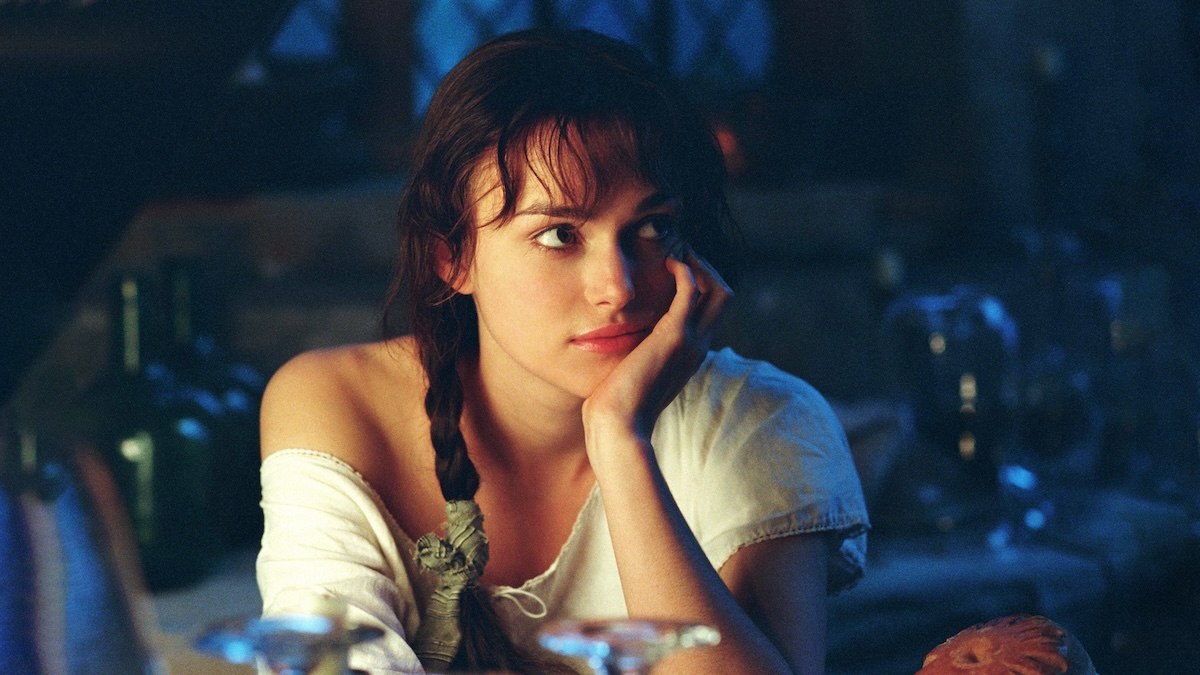
It’s a silly pastime that becomes something of a vocation in this comedy of manners, mirroring the whimsy of Austen’s classic novel. Wright’s adaptation cleverly avoids reading too deeply into these societal or interpersonal reflections on how men and women navigate social spaces, instead choosing to immerse us fully in a world that has the veneer of realism while being at its heart an escapist fantasy. This is a film that recognises the ways in which women had to compromise between their happiness and helping to provide their family’s upkeep, but it never veers very far in this direction. The confusing swirl of emotions that ensnares protagonist Elizabeth Bennet (Keira Knightley) usually comes down to predicaments that she can technically procure a solution from, but which she’s not strong enough to do. She’s more of a victim to her emotions than her material circumstances, swaying helplessly between love and hate.
Elizabeth is also headstrong, intelligent, and eager to defy anyone who seeks to put her down. She’s the perfect sparring partner for the contemptuous, aloof Mr Darcy (Matthew Macfadyen), who looks down on the Bennet family from the outset, even as his dear friend and wealthy bachelor Charles Bingley takes a liking to the eldest daughter, Jane (Rosamund Pike). This is not a helpless tale of two star-crossed lovers trapped by society’s social conventions, but a romantic, giddy story pairing high-strung side characters and a social system that enables them with two petty, prideful figures that can’t help but be drawn to one another. Some of the complexities of Austen’s 1813 novel have been whittled down in the process, but while Pride & Prejudice might not qualify as a perfect adaptation because of this, it’s a stirring romantic drama that trembles with the fatal power of attraction.
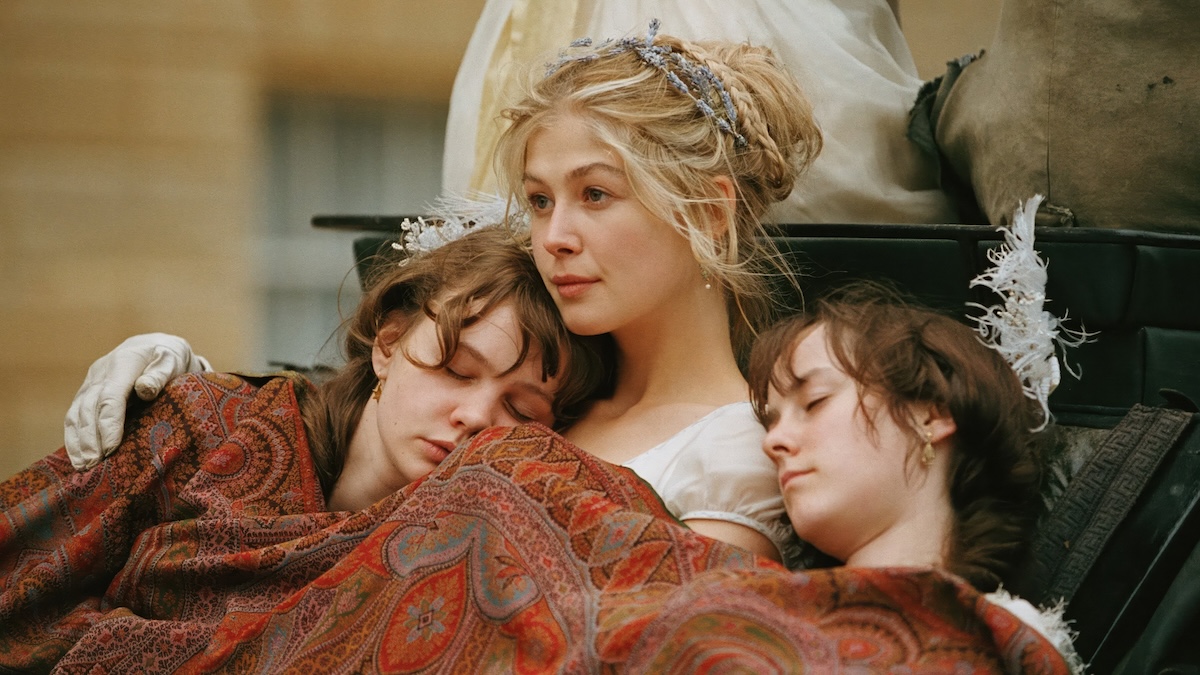
Some scenes fit right at home within the heritage genre of film, serving as a loving, warm-hearted, yet slightly imprecise depiction of a bygone era in England. The compromises these young women endured sound ghastly to imagine in reality, no doubt leading to many unhappy lives and crushed dreams. The film’s light tone never accepts reality’s bleakness, though, with social mobility proving remarkably easier to achieve than it must have been at this time. Amidst this loving yet satirical throwback to the past are Wright’s personal touches as a director. Occasional moments of the English director’s subjectivity tear apart this generalised depiction of a way of life so inscrutable that it’s impossible not to associate it with the light-hearted whimsy of heritage films. Suddenly, any notion of social standing is lost in these brief moments.
Attraction cuts through just about anything, whether that’s pride, condescension, hatred, or sorrow. Wright never overplays this film’s powerful moments, possessing a light touch throughout that allows him to nimbly shift from a matchmaking-oriented comedy of manners to a love story so precise in its evocative sequences that, even without a single on-screen kiss between its central lovers, it’s charged with sensuality and eroticism. The role of physical attraction is considerably elevated here compared to the classic novel it was adapted from, where Darcy’s dismissive comments about Elizabeth to Bingley at Pride & Prejudice’s outset don’t ring true for a single second in the 2005 film.
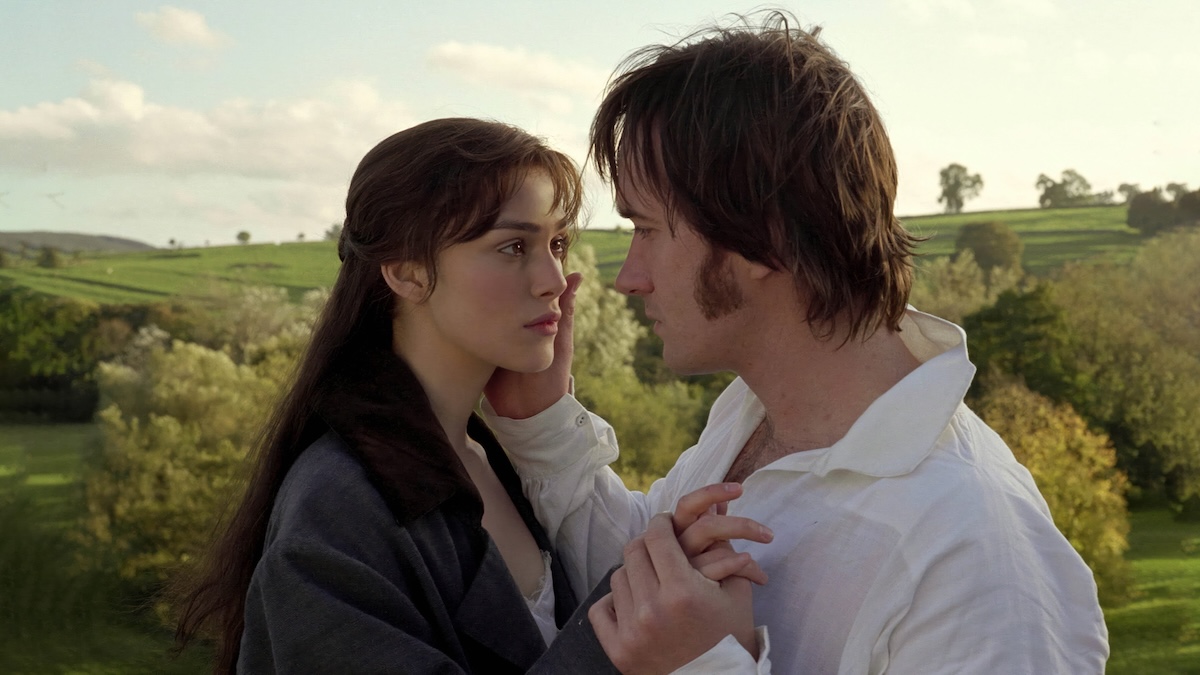
He’s haughty and arrogant, while she’s rude and eager to lash out at her critics (especially Darcy, who she overhears making this comment), but from the get-go it’s clear that these are masks for their true feelings. Whether it’s a fiery argument paired with the pathetic fallacy of heavy rainfall, the importance of touch between two people who don’t know how to feel about one another, or the sudden blend of excitement and fear in admiring someone and being seen in the process, Pride & Prejudice is an electrical, magical love story.
Wright wisely never lets his ambition get the better of him. His long takes, where the camera doesn’t just glide, but snakes in and out of rooms, are always employed for the benefit of this story rather than as an excuse to show off. The briefly transcendent interactions capturing the chemistry between Elizabeth and Darcy, even when they hardly know how to foster it, are a joy to watch, with pitch-perfect close-ups illuminating how lost these characters become within their desire. Pride and prejudice are unfortunate qualities that have become ingrained enough in the pair’s dynamic to feel instinctive, but never so instinctive as attraction.
With gorgeous cinematography, stunning locations (both indoors and outdoors), and a marvellous soundtrack by Dario Marianelli and Jean-Yves Thibaudet, Pride & Prejudice is an enduring modern classic that works as both riveting cinema and an excellent comfort watch. Macfadyen and Knightley might not have seemed like ideal cast members at the time for such important, defined roles, but their chemistry is electric. The pair manage to make Darcy and Elizabeth feel like polar opposites on the surface, yet eerily similar where it counts, such that watching their brittle qualities gradually wear down in one another’s presence is enough to make one swoon.
The only downside to the film is a saccharine ending that will likely be familiar to US viewers, with a final scene that was scrapped from the finished film for UK audiences after performing poorly at test screenings. While the US ending hammers this quality over audiences’ heads with little grace in sight, Pride & Prejudice is suffused with infectious joy over its slowly blossoming yet tempestuous romance.
UK • FRANCE • USA | 2005 | 129 MINUTES | 2.39:1 | COLOUR | ENGLISH

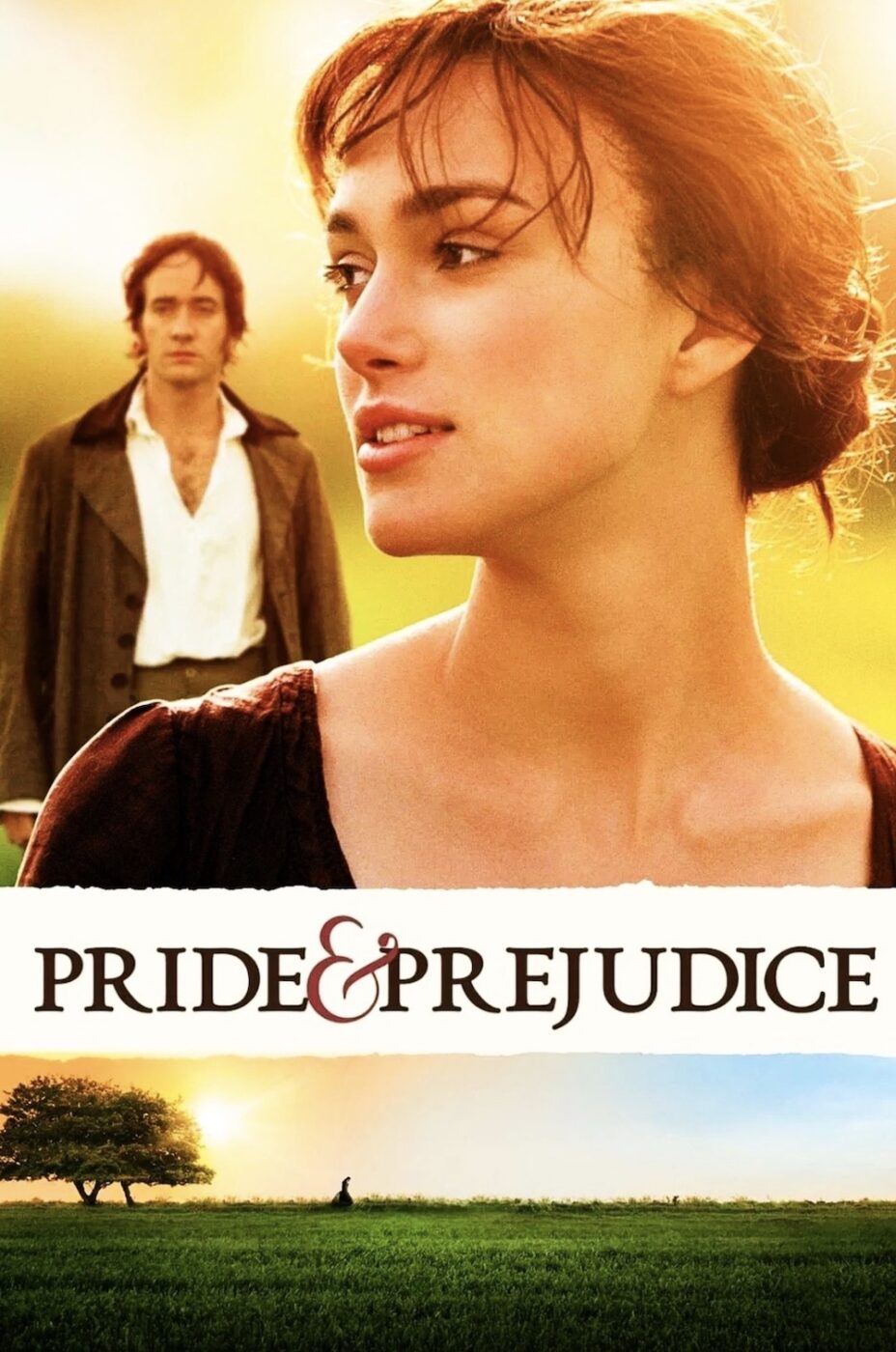
director: Joe Wright.
writer: Deborah Moggach (based on the novel by Jane Austen).
starring: Keira Knightley, Matthew Macfadyen, Rosamund Pike, Rupert Friend, Simon Woods, Donald Sutherland, Brenda Blethyn, Jena Malone, Carey Mulligan, Talulah Riley, Tom Hollander, Claudie Blakley, Kelly Reilly & Judi Dench.
